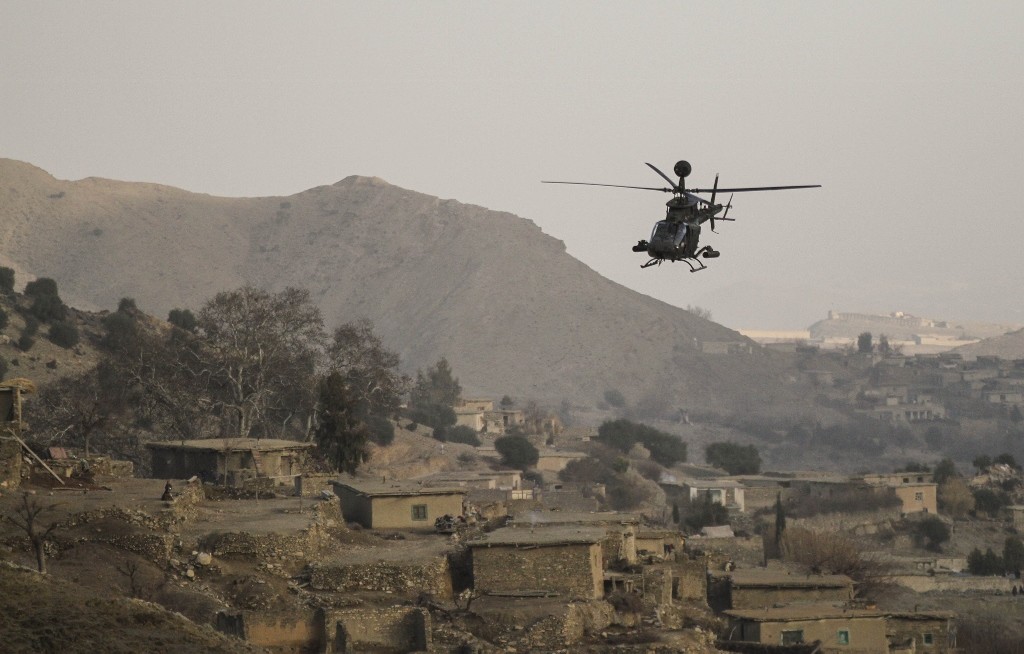Flipping the COIN

Counterinsurgency operations and the nature of insurgencies have changed, Professors Robert Egnell and David Ucko claimed during a discussion of their new book Counterinsurgency in Crisis: Britain and the Challenges of Modern Warfare at Georgetown University this past Tuesday afternoon.
“This is an immensely important book,” said Bruce Hoffman, Director of the Center for Security Studies and Security Studies Program.
Egnell and Ucko focused heavily on Afghanistan arguing that there has been a lack of consensus on what Afghanistan has meant to the various coalition partners.
The United States has effectively managed expectations, Egnell argued, successfully shifting from counter-insurgency-cum-nation-building back to more limited counter-terrorism aims. European nations on the other hand are still are heavily invested in a democratic vision for the country and “girls’ schools.”
One thing that both the US and its European partners have in common, however, Egnell went on to argue, is that “No one knows what success looks like.”
Egnell argued that in the past twelve years, the world and the nature of insurgency have changed with the rampant availability of information technology. “COIN [counter-insurgency] has to adapt with it,” Egnell said.
Ucko said that even though the nature of COIN had evolved since the release of Field Manual 3-24, the COIN manual still delivered sorely needed innovation to the conventional forces.
“COIN has forced the US Army through a steel bath that has made it into a more flexible force,” Egnell agrees. The problem, he claimed, is that COIN is inherently conservative. “It’s about maintaining existing authority,” he added. “It’s about blocking the change agents.
“We’re at a critical moment,” Ucko said. He suggested that new ways of intervening need to be developed to manage an insecure world. His toolbox for intervention included three key concepts. The first is the so-called “Libya Model,” or as he called it, “Death from above.” Ucko stressed the need for a solid relationship between air power and special operations forces in order to increase the effectiveness of air delivered munitions.
“The Libya model is very alluring,” he said, adding that it has been comparatively successful compared to the long drawn out campaigns experienced in Iraq and Afghanistan.
“Enemy adaption should not surprise,” he added, noting that loyalist forces in Libya did in fact adapt to NATO airstrikes, albeit ultimately too slowly, by changing their mechanized formations and traveling in vehicles similar to what the rebel forces were using.
The second concept, which Ucko called the “indirect approach,” focuses heavily on the use of advisors and SOF to elevate the ability of local forces: “It’s low cost and low profile.” He warned that large numbers of SOF personnel would be required to continuously undertake this indirect approach, but acknowledged the fact that it is impossible to mass-produce elite units. “If we can’t grow a comparable force we have to be wary of the indirect approach,” Ucko cautioned. “It’s an art all into itself.” And even with the indirect approach, strategy is still needed. Channeling Clausewitz, Ucko stressed the fundamental need for a political end goal.
Ucko’s last concept centered on contingency operations and the importance of multinational quick reaction forces equipped to respond and provide support within a limited time frame. “In a contingency operation we need to make sure there are people on the ground who will own it.” Ucko said. “It’s important to improve the capability of local players.”
The discussion concluded with a word of caution. “It all comes down to burden sharing,” Ucko said, adding that it is something we have yet to master. “War is damn complex. We should prepare for another bloody century.”
Thomas Gibbons-Neff is a columnist at War on the Rocks. He served as an infantryman with 1st Battalion 6th Marines from 2007-2011 and participated in two deployments to Afghanistan. He is a student at Georgetown University and a deputy editor at The Hoya.

